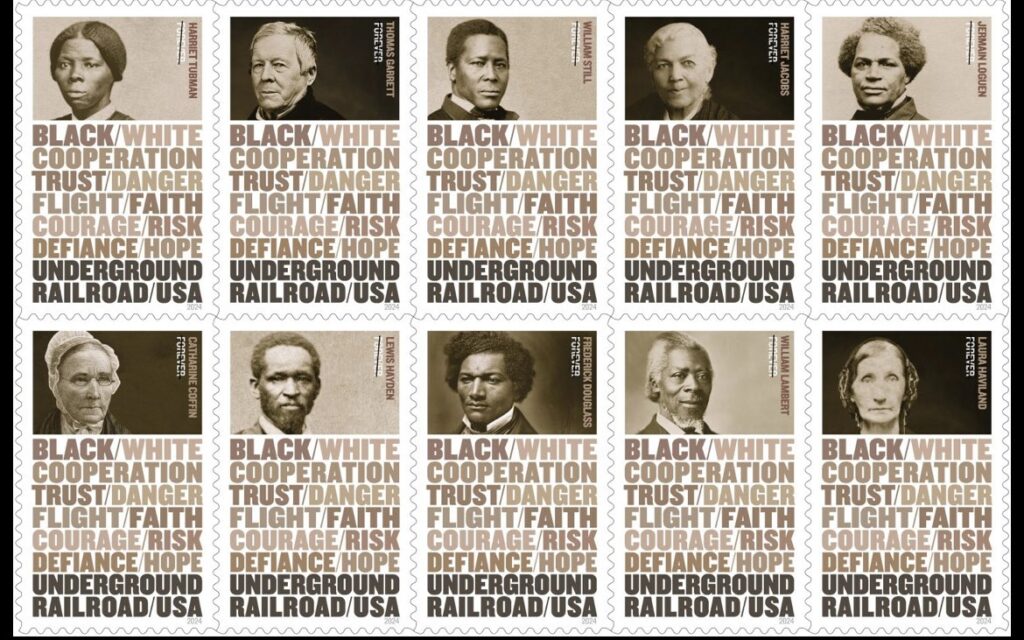
Laura Smith Haviland, the Lenawee County abolitionist and humanitarian who spent decades of her life helping enslaved people escape bondage in the American South and reach freedom in Canada, is one of 10 historical figures who will be honored in a set of postage stamps to be released this year.
The stamps will commemorate the Underground Railroad. Their first day of issue will be March 9.
In addition to Haviland, the people depicted will be:
- Harriet Tubman, who escaped slavery and then returned to Maryland numerous times to lead others to freedom, and during the Civil War also worked for the Union as a scout and spy.
- Thomas Garrett, a Delaware-based Quaker operative.
- William Still, who was born to a mother who had escaped slavery and a father who had purchased his own freedom, and who became the leader of the Philadelphia Vigilance Committee.
- Harriet Jacobs, who escaped slavery and later wrote a memoir describing the horrors of her life in bondage and her escape.
- The Rev. Jermain Loguen, who escaped slavery and became an operative based in Syracuse, New York.
- Catharine Coffin,, a Quaker operative based in Indiana and Ohio.
- Lewis Hayden, who escaped slavery and became an operative based in Boston.
- Frederick Douglass, who escaped slavery and then rose to fame as an abolitionist and orator, and sheltered freedom seekers at his home in Rochester, New York.
- William Lambert, who was born free and became an operative based in Detroit.
“Stamps are miniature works of art and often tell a story that highlights our American culture, our people or an important point in our history,” Lisa Bobb-Semple, acting Stamp Services director for USPS, said in a news release. “Stamps also allow us to show what’s important to us as we carefully select which stamp adorns our mailpieces. The 2024 stamps were designed to offer the American public a broad array of choices for those looking to collect stamps or send a special message.”
Laura Haviland was born in Canada in 1808. In 1829, she settled in Raisin Township with her husband, Charles. She helped start the first anti-slavery society in Michigan, and also founded the state’s first racially integrated school.
She and her husband began sheltering runaway slaves on their farm in the 1830s. Over the next three decades, in addition to opening her own home, she made numerous trips to the South to help people escape from their enslavers. At least one of those slave owners placed a bounty on her head, offering a $3,000 reward to anyone who would kidnap or murder her on his behalf.
After the Civil War, she worked for the Freedmen’s Bureau and also became active in the women’s suffrage and temperance movements. She died in 1898 and is buried in Raisin Valley Cemetery.
Haviland is not the only person on the set of stamps to have a Lenawee County connection. Frederick Douglass visited Adrian and spoke at the Croswell Opera House in 1872.
The Underground Railroad stamps will be sold in sheets of 20. They are “Forever” stamps, which will always be equal in value to the current first-class one-ounce rate.

